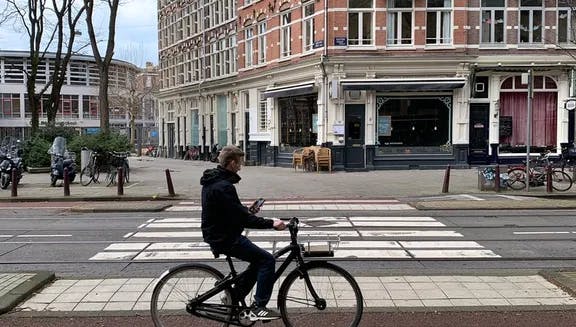
Sworn translation or interpreter
Article provided by KERN Global Language Services, an IN Amsterdam partner.
Which situations require a sworn or certified translation?
Internationals who come to live and work in the Netherlands often need to submit foreign documents to an official Dutch institution, such as the municipality, the IND, a lawyer or a notary office. It is also common for internationals to have Dutch documents that need to be submitted to official institutions in their country of origin or another foreign country. In these cases, an official translation may be required.
Official translations
The requirements of official translations depend on the legal system of the country where documents need to be submitted. In the Netherlands, language service providers distinguish between two kinds of official translations: sworn and certified.
In many countries a sworn translation is legally required. If not, a certified translation may be slightly cheaper. If you are in doubt about whether a sworn or certified translation is required, it is always best to contact a professional language service provider for more information.
What is a sworn translation?
Sworn translations receive an official stamp and signature from a translator whose name appears in the Dutch register of sworn interpreters and translators (RBTV). The stamp and signature ensure the recipient of the document that it has been translated by a sworn translator. Furthermore, the translator certifies the authenticity, completeness and accuracy of the translation. The original source document or a copy thereof needs to be attached to the translation in a fraud-proof way. Sworn translations may be submitted to a Dutch district court for an apostille or legalisation.
What is a certified translation?
There are some important differences between a sworn and certified translation.
A certified translation also receives a stamp and signature, but not from a sworn translator. Instead, the language service provider that is responsible for the translation stamps and signs your document. In addition, language service providers deliver a certificate with the translation where they declare to be an independent, professional organisation and acknowledge the true and faithful rendering of the source documents into the target language. The original source document or a copy, the translation and the certificate are all attached together.
In the case of a certified translation, the language service provider’s choice of translator is not limited to the Dutch register of sworn interpreters and translators. As a result, certified translations are generally easier to provide and at a lower cost compared to sworn translations. Although certified translations are accepted in many cases, it is important to keep in mind that a language service provider is not a government agency and cannot give legality to a translation. Therefore certified translations are not eligible for an apostille or legalisation from a district court.
What is an apostille?
The authorities of countries that use the civil law system and have entered into the Apostille Convention may require an apostille to accept foreign documents and their translations. An apostille is an official certificate issued by a (Dutch) district court, comparable to a notarisation in domestic law. The court checks if the name and signature of the sworn translator and the signatory of the source document are registered at the court. Only when this is the case, the court will issue an apostille.
What is a legalisation?
Official documents and their translations that are to be used in countries that have not signed the Apostille Convention must be legalised. In the Netherlands, a district court will only legalise documents by signatories and sworn translators registered at the court. In addition, the documents must be legalised by the foreign ministry of the country where the documents originated, and then by the foreign ministry of the government of the country where the documents will be used. Usually, the last step of the legalisation process is performed at an embassy or consulate.
Generally professional language service providers will be able to tell you whether you need a sworn or certified translation, whether your documents require an apostille or need to be legalised.
Which situations require a sworn interpreter?
In the Netherlands, people who want to buy or sell a house, draw up a marriage settlement, make a will or sign other kinds of legal documents need to go to a civil law notary. The notary will draw up a deed and is present when the deed is signed (executed). At the time of execution, the notary needs to make certain that you understand and agree with the contract you are about to sign. In addition, the notary needs to establish the identities of all the signatories and determine everyone is signing out of free will.
If one of the signatories does not understand the language in which the deed is drawn up and/or the language in which it is executed, a notary is obliged by law to have an interpreter present during the execution of the deed(s). This way the notary can communicate independently with clients. According to Dutch law, the interpreter needs to be a sworn interpreter, i.e. appear in the Dutch register of sworn interpreters and translators (RBTV).
Most Dutch notary offices have their own network of sworn interpreters or rely on a translation agency. To save costs, you can also arrange a professional interpreter yourself.
Learn more about KERN Global Language Services.
Related articles

Obtaining dual nationality in the Netherlands

Top 5 questions internationals ask immigration lawyers

Moving to the Netherlands after Brexit

Conditions and benefits of the highly skilled migrant permit, EU Blue Card and ICT permit

5 tips for driving in and around uniquely Dutch traffic scenarios

Residence permit

Document authentication

Extracts & copies of certificates
